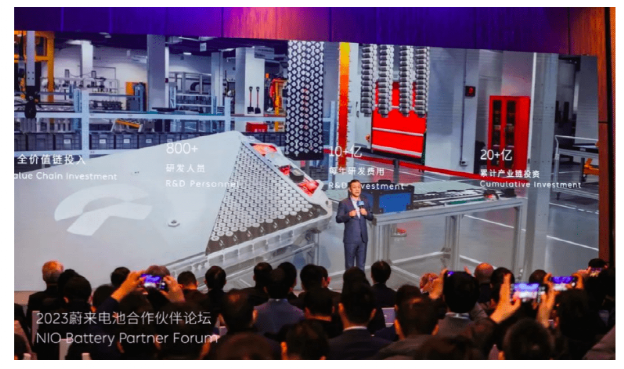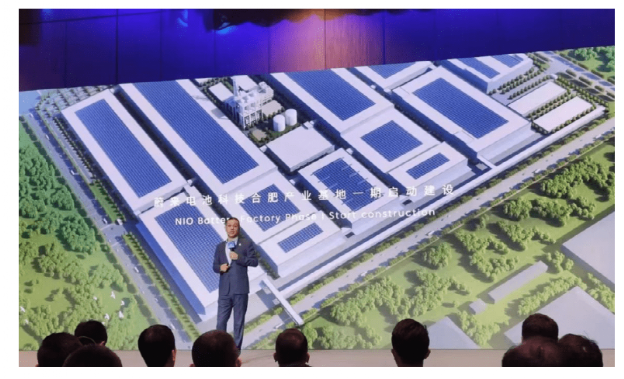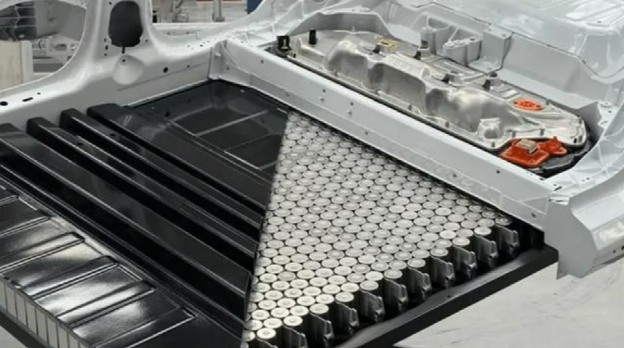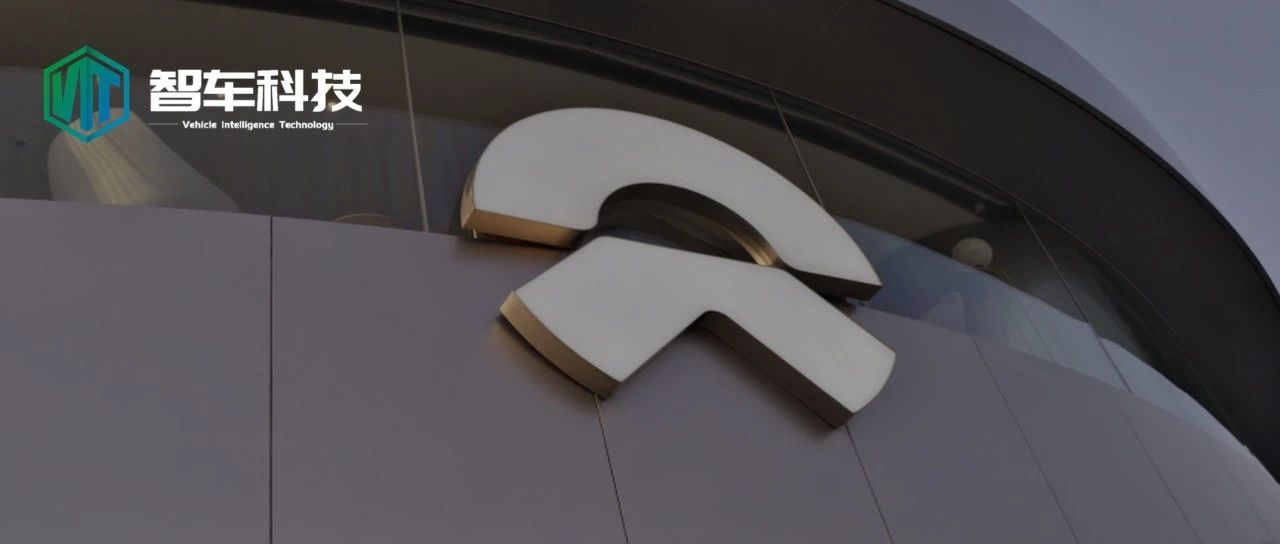Author: Zhang Chi
Introduction
Batteries are essential to electric vehicles, both from a cost perspective and in terms of determining overall vehicle performance. Every development in the battery industry has a significant impact.
In late February of this year, NIO held a “2023 NIO Battery Partnership Forum” in Hefei, announcing that the company, one of the new forces in the domestic automobile industry that has received the most media attention, will accelerate the pace of its self-developed and self-manufactured batteries. At this press conference, relevant domestic battery industry giants such as Qingdao Guosheng Mining, Zijin Mining, battery recycling company GEM, and upstream battery companies such as ASC, KL Materials and several Japanese and Korean battery manufacturing equipment companies were all in attendance.

NIO Invests Heavily in Talent and Resources for Battery Development
It has recently come to media attention in the industry that Shawn Hao, a well-known senior quality manager in the battery field, who was a key figure in Apple’s car project and has previously worked for A123 in North America, and Zack Izaki, the North American Technical Director of Panasonic Batteries, a close friend of Musk and the person responsible for Panasonic’s battery production for Tesla, have both officially joined NIO. The addition of these two foreign experts indicates that NIO is making serious moves in the field of batteries.
Currently, NIO’s self-made battery phase one factory has officially broken ground, with an expected planned annual production capacity of 40 GWh. The factory will produce NIO’s self-developed large cylindrical batteries. In Shanghai, NIO’s battery trial production base has also begun operation, providing support for NIO’s battery research and development, certification testing, and trial production.

NIO has assembled an 800-person battery R&D team, investing over RMB 1 billion annually in research and development. In contrast to the tens of billions of RMB spent on vehicle R&D, 1 billion RMB is already a considerable sum in the battery industry. As a newcomer to the domestic battery industry, Zhong Chuangxin Hang invested only RMB 300 million in R&D in 2021, yet still managed to create multiple series of products. Honeycomb Energy, known for its large R&D investments, barely surpassed RMB 1 billion in 2022. Such high R&D investments not only demonstrate NIO’s determination to enter the battery industry, but also ensure that NIO will not have any financial difficulties in battery research and development.## The Advantages of Making Batteries by Themselves are Evident
From a cost perspective, as Li Bin mentioned in an interview, the cost of batteries accounts for about 40% of the overall cost of an electric car, and the gross profit margin of battery companies is also around 20%. Once an automaker is able to develop and manufacture batteries by themselves, it can directly bring 8% profit. According to NIO’s plan, the self-developed and manufactured batteries will first be deployed in the company’s entry-level Alps model. As an entry-level brand of NIO, cost control is the biggest challenge for Alps. Developing and manufacturing batteries by themselves will give NIO a greater say in cost control for the brand.
From a performance perspective, self-developed batteries also help provide greater endorsement for their own models. Tesla’s 4680 battery and BYD’s blade battery are both excellent examples of OEM self-developed batteries. Especially the blade battery has greatly contributed to BYD’s sales growth. If NIO can also make breakthroughs in their self-developed batteries and have their own distinctive features, it will also provide better endorsement for NIO’s overall vehicle sales. From another aspect, the trend of future batteries will definitely be better integrated with the chassis, and the Cell to Chassis of Leapmotor has taken space utilization to a new level. Therefore, OEMs who understand or master more knowledge about batteries will have a greater help for the later overall performance optimization.

Counterstrike of Battery Companies
In the end, the battery industry is also a business with significant economies of scale. If an automaker is unable to achieve a certain scale in making batteries, profitability will be a big problem. Moreover, companies like CATL have already grown so large that the earlier R&D costs have been completely diluted. As for factory management and operation, CATL’s advantage is also very obvious in terms of enterprise system processes and talent teams. Moreover, in the battery field, traditional battery giants have accumulated a lot of experience in the R&D aspect. Automakers who want to make a comeback will also face many challenges. After all, those battery companies have a clear first-mover advantage.To increase the attraction of their products, CATL recently launched the “Lithium Mine Rebate” plan. As long as an automaker gives 80% of its battery orders to CATL, CATL will sell some batteries to the automaker at a price of 200,000 yuan per ton of lithium ore. At the end of last year, lithium ore prices once approached 600,000 yuan per ton. Such a large-scale price reduction undoubtedly has a significant impact on automakers, like NIO, that promote self-developed and self-manufactured batteries.
The issue of batteries is too sensitive for the entire new energy vehicle industry. Tesla’s high profit margins and continuous price cuts have forced domestic automakers to take action to make their own products compete with Tesla. In the future, stories about batteries will become more and more frequent. If NIO can achieve good results with its self-developed and self-manufactured batteries, then domestic automakers will definitely follow suit. By then, the days of battery companies will no longer be as comfortable as they are now.
This article is a translation by ChatGPT of a Chinese report from 42HOW. If you have any questions about it, please email bd@42how.com.
